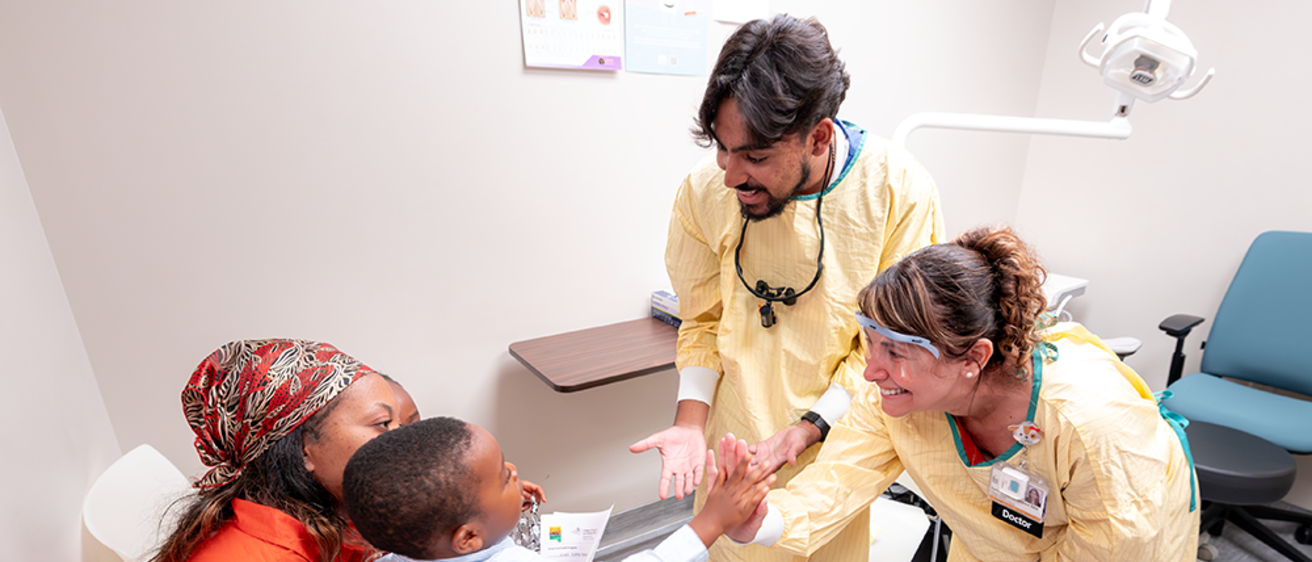"Preventive care, particularly for infants and toddlers, is one of the most cost-effective ways to improve oral health,” explained Karin Weber-Gasparoni, professor and head of the Department of Pediatric Dentistry at the University of Iowa.
But improving preventive oral health care for very young children, especially children from low-income families can be challenging.
One challenge is that only a small percentage of infants, and an even lower percentage of children from low-income families, see a dentist.
That’s why, in 1998, Weber-Gasparoni, along with Mike Kanellis, professor of pediatric dentistry, founded the Infant Oral Health Program in collaboration with the local Special Supplemental Food Program for Women, Infants, and Children (WIC) through the Johnson County Department of Public Health. Twice a week, University of Iowa dental students, pediatric dentistry residents, and pediatric medicine residents provide free dental screenings, preventive care, and education to low-income children up to age three at the WIC clinic.
“Health professionals have an obligation to provide patients from low-income and underprivileged backgrounds the same access to care as patients who are more affluent,” Weber-Gasparoni said.
Including pediatric medical residents in this process is a crucial step to improving oral health for these families. Although few infants see a dentist before the age of one, most infants visit their pediatrician several times during their first year of life. Thus, training pediatricians to provide basic infant oral screenings and education, and to identify risks for childhood cavities is a has been shown to improve preventive oral health care in early childhood.
Infant Oral Health Program Facts
- Provided preventive care for thousands of children in the WIC clinic;
- Since 2000, over 1,800 4th-year dental students have had a rotation working in the WIC clinic;
- Hundreds of pediatric dentistry residents (~6 per year) and pediatric medicine residents (~24 per year) have had a rotation working in the WIC Clinic.
“Medical professionals need to be trained in early childhood oral health, and our research has shown that it really makes a difference when they are,” said Weber-Gasparoni.
Weber-Gasparoni and her interdisciplinary team drew from their experiences working with families and children in the WIC clinic to develop an innovative clinical trial, informed by self-determination theory, that empowers caregivers of young children to support positive and healthy oral health for their infants and toddlers through a nurturing and supportive relationship with health care professionals. The National Institutes of Health and the National Institute for Dental and Craniofacial Research provided a $4.4 million grant for this clinical trial.
These efforts show Weber-Gasparoni’s passion for supporting new caregivers and improving oral health for underserved populations and how new collaborative clinical research initiatives at Iowa Dentistry are transforming oral health care for toddlers and infants.
“If we can keep a child cavity-free in the first three years of life, it will increase the opportunity for this child to enjoy better oral health for their lifetime,” Weber-Gasparoni exclaimed.
